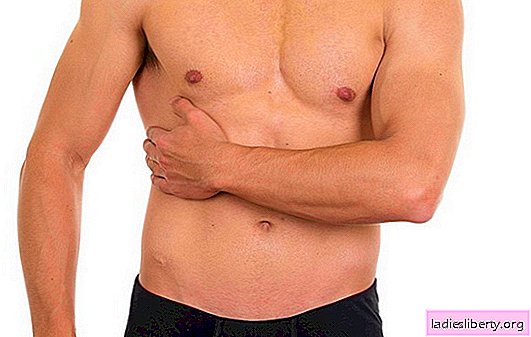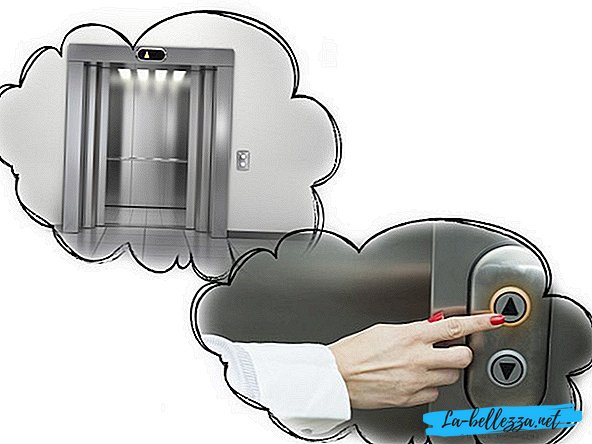
Pain sensations always indicate a malfunction in the body.
Discomfort in the left hypochondrium is often found in people who do not have a normal diet: in the vast majority of cases, such pain indicates problems with the gastrointestinal tract.
However, the reasons may be different.
In any case, unpleasant sensations in such a localization pose a health hazard. What are the causes of pain in the left hypochondrium and what should be done to solve this problem?
It hurts in the left hypochondrium: causes
The causes of pain in the left hypochondrium are always pathological: just like that, pain does not occur. The initial cause of the pain syndrome can be determined only after a series of specialized studies. All reasons can be divided into four large groups:
• Pathology of the gastrointestinal tract.
• Gynecological diseases.
• Diseases of the musculoskeletal system.
• Malfunctions in the respiratory system.
Pathology of the gastrointestinal tract
They make up the vast majority of the reasons why it hurts in the left hypochondrium. Among such pathologies:
• Gastritis. Gastritis is a disease known to many, but not everyone knows that it can hurt not only in the epigastric region, but also in the left hypochondrium. This is due to the localization of the stomach itself: it is not oriented strictly in the center, but is somewhat shifted to the left. Gastritis is characterized by sharp cutting or dull aching pains. In addition to pain, inflammatory lesions of the stomach are characteristic: heartburn, belching, heaviness in the stomach, sometimes nausea and vomiting.
• Pancreatitis. Acute pancreatitis is an inflammatory disease of the pancreas. Pancreatitis pains are very intense. Often discomfort surrounds. Pancreatitis occurs in all with equal frequency, at risk are people who abuse alcohol, fatty fried foods.
• Appendicitis. In some cases, pain with appendicitis can radiate to the left hypochondrium and left iliac region. This is rare, but still possible.
• Intestinal pathology. Are diverse. We can talk about colitis, irritable bowel syndrome, polyps, malignant neoplasms, sigmoiditis, flatulence, etc. All these problems are accompanied by pain in the left hypochondrium.
• Gastric ulcer. It is difficult to distinguish an ulcer from gastritis without a special endoscopic examination. An ulcer can cause pain in the left hypochondrium.
Gynecological diseases
Many dangerous gynecological pathologies are accompanied by pain in the left hypochondrium. In this case, pain radiates (is reflected) from the place of direct localization. Among these diseases and conditions: ovarian torsion, cystic formations, ectopic pregnancy, etc.
Diseases of the musculoskeletal system
• Osteochondrosis of the thoracic and / or lumbosacral spine. In this case, the pain is caused by compression of the nerve roots. They are reflected and amplified by movements, coughing.
• Intervertebral hernia. Like osteochondrosis, hernias are characterized by pain that can be given to the left hypochondrium. However, in this case, the intensity of discomfort is higher.
Malfunctions in the respiratory system
Lower lobar pneumonia may be falsely mistaken for gastritis or pancreatitis.
Among other reasons: glomerulonephritis, pyelonephritis, urolithiasis.
Sore left hypochondrium: diagnosis
As you can see from the list above, there are a lot of reasons why it hurts in the left hypochondrium. Only the doctor can determine the source of the problem and only by the results of diagnostic measures. Diagnostics includes a number of studies. At the first stage, the patient needs to see a doctor. It is more logical to plan a visit to a therapist: he will conduct an initial diagnosis and give the necessary directions to specialists. Which specialists can help:
• Gastroenterologist - treats pathologies of the gastrointestinal tract.
• Neurologist.
• Orthopedist - together with a neurologist deals with problems with the musculoskeletal system.
• Nephrologist - treat diseases of the excretory system.
• Gynecologist.
Diagnostic measures may be as follows:
• History taking. The standard procedure for interviewing a patient. The doctor finds out the patient’s complaints, their nature. This helps the specialist to compile the initial clinical picture.
• Palpation. Palpation allows you to assess the condition and structure of the abdominal organs, pain reactions. Palpation is also used to diagnose diseases of the musculoskeletal system.
• Functional tests. Conducted to determine the mobility of the spine in the thoracic and lumbosacral.
• Radiography. It is prescribed for suspected pathology of the musculoskeletal system. It makes it possible to identify changes in the bone structures of the spine. The x-ray is informative in assessing the condition of the stomach and intestines. In this case, contrast is applied.
• MRI / CT diagnostics. MRI is most informative in detecting disorders of the soft tissues (organs, intervertebral discs, spinal cord, etc.). CT, in essence, is a more advanced analogue of radiography and allows you to get an image of bone structures in great detail
• Endoscopic examinations. Among them, FGDS (examination of the gastric mucosa) and colonoscopy (examination of the colon). These endoscopic studies make it possible with absolute accuracy to identify any pathology of the stomach and intestines.
• Ultrasound diagnostics. It is used to study the kidneys, pancreas. Ultrasound of the stomach and intestines in the form in which we know it is rarely prescribed, because it does not give any information.
When it hurts in the left hypochondrium, laboratory tests are also prescribed: a general blood test (to determine inflammation), a general urinalysis, and a biochemical blood test.
Sore left hypochondrium: treatment
To eliminate the source of pain, both conservative therapy and surgical treatment are practiced. Conservative therapy involves taking drugs. The groups of medicines are diverse, because, like the causes of pain, there are many. It all depends on the specific disease. Among the medicines:
• Anti-inflammatory. Anti-inflammatory drugs are prescribed to relieve inflammatory tissue damage. Their intake is limited or completely excluded if the cause is gastrointestinal diseases. However, they are indispensable in the treatment of pathologies of the musculoskeletal system. This includes a huge number of items: Ketorolac, Ibuprofen, etc.
• Analgesics. Used to relieve pain. You can use them yourself, as a first aid measure, but you need to do this with caution. Pain is a kind of indicator that provides guidance to the doctor. Analgesics dull discomfort. Among the items: Baralgin, Analgin, etc.
• Antispasmodics. They relieve spasm of smooth muscle of organs. Duspatalin, Drotaverin, Spazgan, etc. Their reception is permissible by the patient himself to relieve pain.
• Antacids. They are prescribed to eliminate excessive acidity of gastric juice (with gastritis with high acidity).
• Diuretic drugs (diuretics). Appointed with pyelonephritis.
• Chondroprotection. Contribute to the protection of the vertebrae from adverse factors.
• Carminative drugs. They are prescribed to combat the increased production of intestinal gases (Espumisan, Almagel, etc.).
In exceptional cases, you can not do without surgical intervention. The goals of surgical treatment are different - to restore the anatomical integrity of the organ (with perforated ulcer, rupture of organs), remove damaged tissue (with necrotic pancreatitis, torsion of the ovary, etc.), excise tumors, etc. Surgical treatment is associated with risks for the patient, therefore, they resort to it last and strictly if necessary.
Thus, if it hurts in the left hypochondrium, there can be many reasons for this. It is impossible to independently figure out so many probable sources; you need to see a doctor.
If severe pain is observed, it is recommended to call an ambulance. Treatment consists of taking medication.
Surgical treatment is prescribed in exceptional cases.
To relieve pain and alleviate the condition, self-administration of antispasmodics and analgesics is allowed, but only as a temporary measure until a specialist visit.











